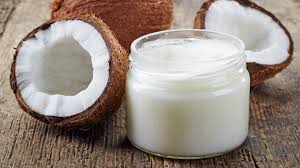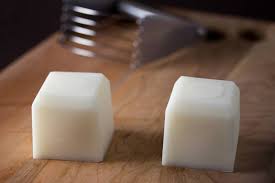Using Coconut Oil Instead of Shortening in Your Recipes
Substituting coconut oil for shortening can be a healthier alternative in many recipes, offering a unique flavor profile and potential health benefits. Here's a comprehensive guide on how to use coconut oil as a substitute for shortening in your cooking and baking endeavors:
1. Understanding Coconut Oil:
- Coconut oil is a plant-based fat extracted from the meat of mature coconuts. It solidifies at room temperature, similar to shortening, making it a suitable replacement in many recipes.
coconut oil instead of shortening
2. Benefits of Using Coconut Oil:
- Healthier Option: Coconut oil is rich in medium-chain triglycerides (MCTs), which are believed to offer various health benefits, including improved heart health and metabolism.
- Unique Flavor: Coconut oil adds a subtle coconut flavor to dishes, enhancing the taste of baked goods like cookies, cakes, and pie crusts.
- Vegan and Dairy-Free: Coconut oil is a vegan-friendly alternative to shortening, making it suitable for those with dairy allergies or dietary restrictions.
3. How to Substitute Coconut Oil for Shortening:
- 1:1 Ratio: In most recipes, you can substitute coconut oil for shortening at a 1:1 ratio. For example, if a recipe calls for 1 cup of shortening, you can use 1 cup of coconut oil instead.
- Solid vs. Liquid: Depending on the temperature, coconut oil may be solid or liquid. When using coconut oil as a shortening substitute, ensure it is in its solid state for best results. You can achieve this by refrigerating or chilling the coconut oil until firm.
- Melting Point: Coconut oil has a lower melting point than shortening, so baked goods made with coconut oil may spread more than those made with shortening. To prevent excessive spreading, consider reducing the amount of coconut oil slightly or chilling the dough before baking.
4. Recipes Using Coconut Oil Instead of Shortening:
- Coconut Oil Chocolate Chip Cookies: Replace shortening with coconut oil in your favorite chocolate chip cookie recipe for a hint of coconut flavor.
- Coconut Oil Pie Crust: Use coconut oil in place of shortening when making pie crusts for a flaky, flavorful result.
- Coconut Oil Brownies: Swap shortening for coconut oil in brownie recipes to add moisture and richness to the finished product.
coconut oil instead of shortening
5. Considerations When Using Coconut Oil:
- Flavor Profile: Keep in mind that coconut oil adds a subtle coconut flavor to dishes. While this can enhance certain recipes, it may not be suitable for all flavor profiles.
- Allergies and Sensitivities: Be mindful of any allergies or sensitivities to coconut when using coconut oil as a substitute for shortening.
Conclusion:
- Using coconut oil instead of shortening offers a healthier, plant-based alternative with a unique flavor profile. By understanding how to substitute coconut oil in your recipes and experimenting with different dishes, you can enjoy the benefits of this versatile ingredient in your cooking and baking endeavors.

